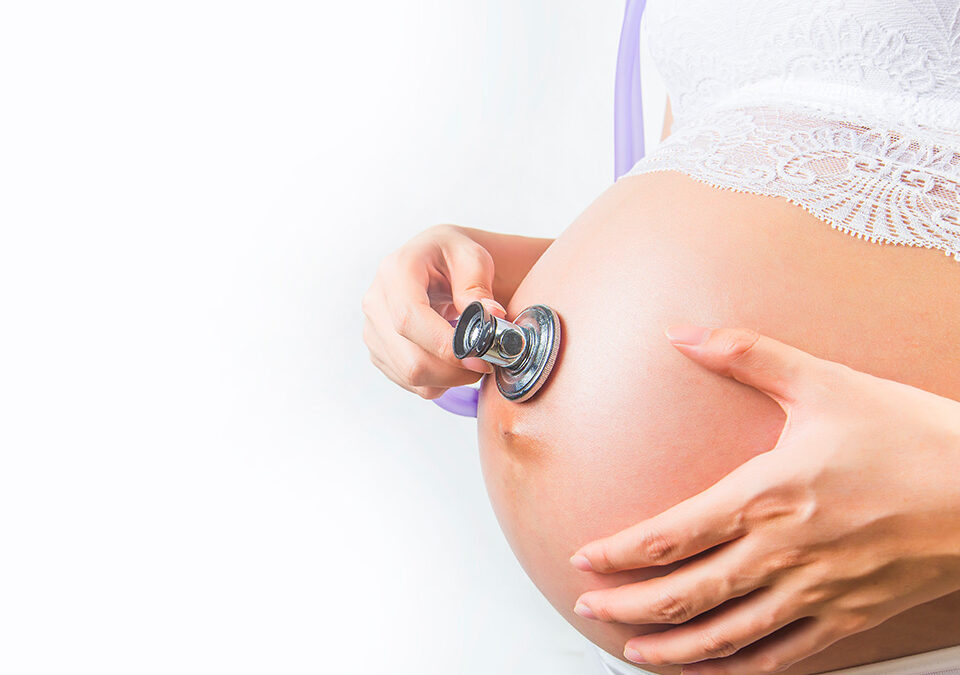
Is Type 2 Diabetes Reversible?
June 3, 2021
Is Diabetes A Reason For Your Depression?
June 16, 2021During pregnancy, the body might develop insulin resistance as a result of hormonal changes. Due to insufficient insulin, the levels of blood glucose rises and causes diabetes. This diabetes caused during pregnancy is known as gestational diabetes. Usually, gestational diabetes disappears after pregnancy; however, it may cause severe risks and complications for you and your baby during pregnancy as well as after birth. Therefore, timely treatment and prevention are a must to reduce the risks of gestational diabetes. Here we touch upon some of the most common risks of unmanaged gestational diabetes.
What Are The Risks Of Gestational Diabetes?
Macrosomia:
Macrosomia is a condition in which the baby is considerably larger in terms of body weight. When the level of blood sugar in the body is high, the body starts producing more insulin in the mother’s body. The same phenomenon happens with the fetus as well. However, in the case of the fetus, the excess glucose is converted into fat and causes a condition of being overweight. Macrosomia may cause many problems during delivery such as shoulder damage to the baby. It may also lead to many other birth traumas including breathing difficulties and nerve damage to the baby. Therefore, continuous monitoring of the baby’s weight is extremely important in cases where the mother has gestational diabetes.
Hypoglycemia And Jaundice In Babies:
Due to high levels of blood sugar in the mother’s body during pregnancy, the fetus also starts producing high levels of insulin in the body. After the birth, even when the baby no longer has high blood sugar levels, it still might continue producing high levels of insulin, leading to a very low level of blood sugar in the body. This condition of low blood sugar level is called hypoglycemia and is very common with babies born to mothers with gestational diabetes. Such babies are also at a higher risk of developing jaundice that can be witnessed through the yellowing of their skin and eyes.
Polyhydramnios:
Gestational diabetes may also cause polyhydramnios, a condition of excess amniotic fluid in the womb. Amniotic fluid is the fluid that surrounds the baby and an excess level of this fluid can cause premature labour and many other problems during delivery including problems with the baby’s position.
Premature Delivery:
One of the major risks of gestational diabetes is premature birth. Gestational diabetes may lead to premature delivery of babies, which may cause many problems including breathing issues and other developmental risks.
Stillbirth:
The chances of stillbirth or the loss of your baby are very low, but in rare cases, gestational diabetes has caused stillbirth. However, effective management of the condition can significantly reduce the risks.
Pre-eclampsia:
Gestational diabetes may also cause high blood pressure levels during pregnancy. This condition is called pre-eclampsia and can lead to severe complications during pregnancy, if not treated timely.
Type 2 Diabetes In Mothers:
Mothers who have suffered from gestational diabetes are at a much higher risk of developing type 2 diabetes in the later stage of life post-delivery. However, by following a healthy lifestyle, they may reduce the risks considerably.
Type 2 Diabetes In Babies:
Babies born following pregnancies with gestational diabetes are at a higher risk of developing obesity and type 2 diabetes in the later stages of life. Therefore, it is essential for them to maintain a healthy lifestyle from childhood.
Management Of Gestational Diabetes
Gestational diabetes can be treated with continuous monitoring of blood sugar levels. Your doctor might prescribe medications to control the blood sugar levels in your body. However, the best way to manage gestational diabetes is to take a healthy diet rich in fruits, vegetables and whole grains and to maintain a healthy lifestyle. Being physically active is extremely important for the treatment of gestational diabetes.
Prevention Of Gestational Diabetes
Eat a healthy diet filled with fruits, vegetables and whole grains.
Exercise daily in accordance with your pregnancy complications.
Meditate regularly to alleviate stress and maintain your mental health.
Keep your blood sugar levels in check so you may prevent gestational diabetes at an early stage.
Takeaway
Gestational diabetes may cause many serious complications for mothers as well as babies. The chances of developing type 2 diabetes also elevate due to gestational diabetes. However, with effective management of diabetes, you can easily reduce the risks and complications caused due to gestational diabetes. Eating a healthy diet and maintaining a healthy lifestyle are the keys to preventing and treating gestational diabetes.
Reference Links:
- https://www.diabetes.org/diabetes/gestational-diabetes/how-will-this-impact-my-baby
- https://www.tommys.org/pregnancy-information/pregnancy-complications/gestational-diabetes/what-are-risks-gestational-diabetes
- https://www.nhs.uk/conditions/gestational-diabetes/
- https://www.cdc.gov/diabetes/basics/gestational.html
- https://www.ncbi.nlm.nih.gov/pmc/articles/PMC4404707/





